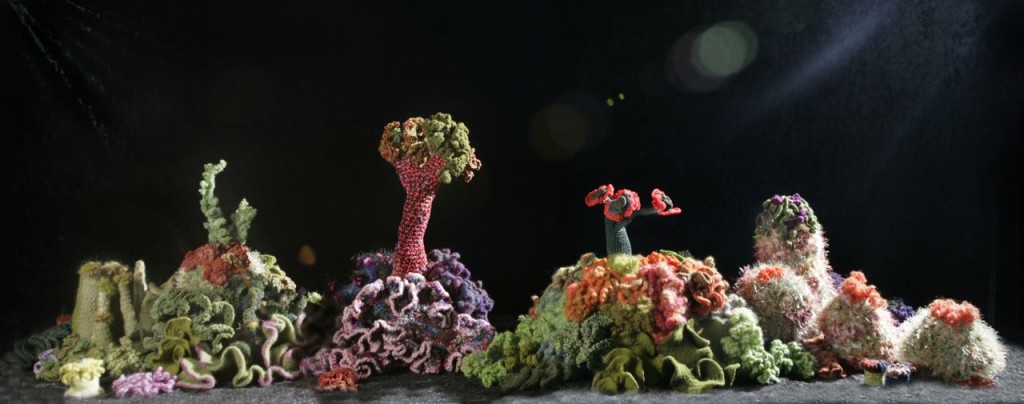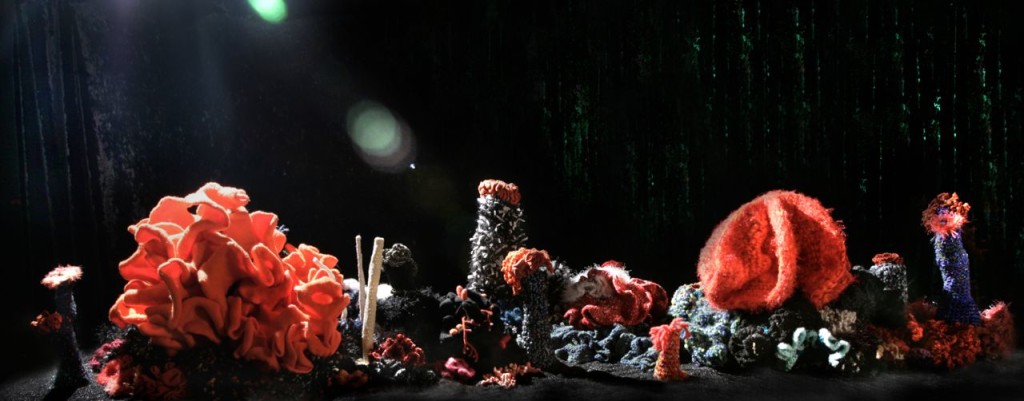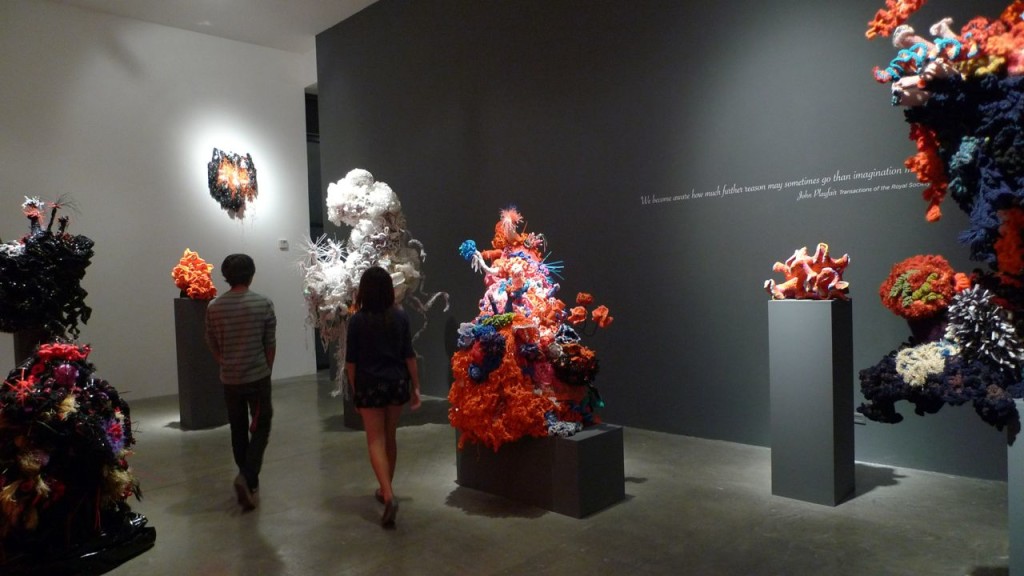Mar 18 Mon
Templeton Lecture
6:30pm @ University of Sydney, Eastern Ave. Auditorium On Monday March 18, IFF Director Margaret Wertheim will present the 2013 Templeton Lecture at the University of Sydney. Hosted by the Center for the Human Aspects of Science and Technology (CHAST), the Templeton Lecture was endowed by Professor Charles Birch, the influential Australian biologist who pioneered the subject of environmental philosophy, for which he was the awarded the 1990 Templeton Prize. Margaret’s lecture – “We Are All Corals Now” – will discuss the IFF’s Crochet Coral Reef project as a metaphor for thinking about human action in the age of global warming.
WE ARE ALL CORALS NOW: A meditation on art, science and collectivity in the age of global warming
In an age of climate-change denial, humanity urgently needs positive ways to help us face up to global warming. No ecosystems are more vulnerable than coral reefs, and in these fragile marvels we may find a metaphor for hope. Coral reefs are made up from millions of tiny coral polyps. Each polyp is insignificant on its own, yet when acting together these minute creatures collectively produce the spectacle of the Great Barrier Reef, the only organism that can be seen from outer space.
In 2005, sisters Christine and Margaret Wertheim began to crochet a coral reef. Inspired by the action of living reefs, they envisioned their project as a collaborative endeavor that would fuse environmentalism, marine science, handicraft and community art practice. Today the Crochet Coral Reef is perhaps the largest art + science endeavor on the planet. More than 25 reefs have been made around the world, including in Chicago, New York, London, Melbourne, Latvia and Germany. Tens of thousands of people have helped to make these reefs. More than 3 million visitors have seen the resulting exhibitions. The project has been called, “the AIDS quilt of global warming.”
Within the framework of the Crochet Reef project, people are invited into an endeavor that mimics the process of nature itself. Through participatory experience, a profound lesson is conveyed: While none of us as individuals can solve the problem of global warming, collectively we have the power to sustain a better, healthier world. In this talk Margaret will discuss the Crochet Reef project as a model for thinking through our relationship with nature as we face the most pressing environmental challenge of our time.
Event free and open to the public.


